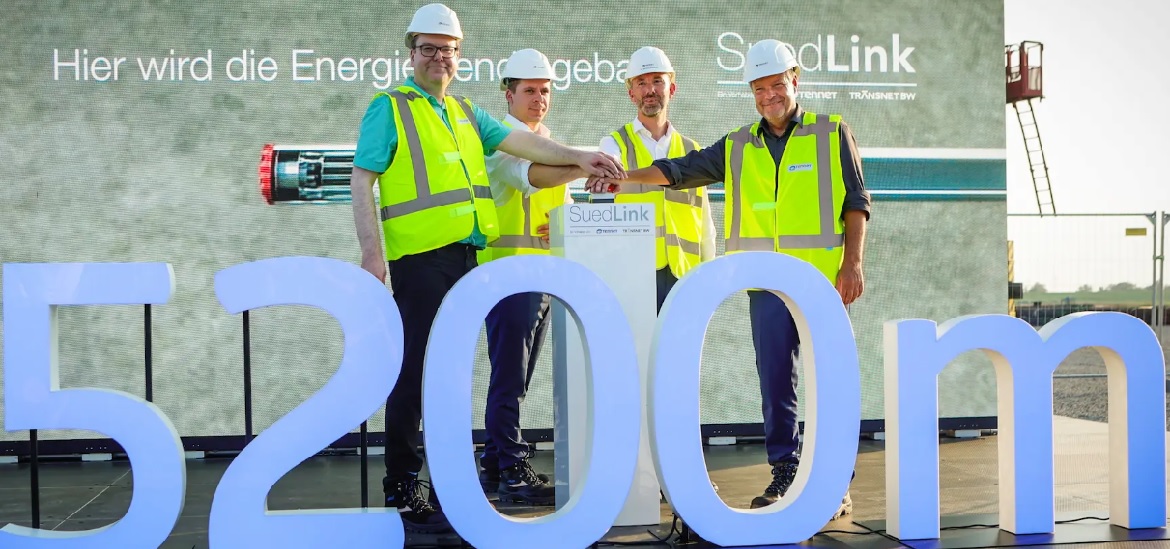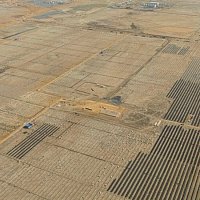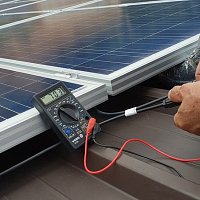
Over 100 distinguished guests were in attendance, most notably of all TenneT's Chief Operating Officer, Tim Meyerjürgens and Dr. Robert Habeck, Federal Minister for Economy and Climate Protection.
Earlier this week TenneT officially initiated the construction of SuedLink, a critical milestone in Germany's ambitious energy transition plan. The groundbreaking ceremony took place at the Elbe crossing site in Wewelsfleth, Schleswig-Holstein, marking the beginning of a crucial project aimed at reshaping the nation's energy landscape.
According to the company’s pres release, SuedLink, a massive infrastructure endeavor, will span an impressive 5,200 meters, tunneling beneath the Elbe River. Despite receiving the crucial construction permit for the Elbe crossing only in mid-August, SuedLink's efficient project management and rapid mobilization of construction teams have allowed construction to commence swiftly.
Over 100 distinguished guests were in attendance to witness the launch event, most notably of all TenneT's Chief Operating Officer, Tim Meyerjürgens, Dr. Robert Habeck, Federal Minister for Economy and Climate Protection, Christian Meyer, Minister of Energy for Lower Saxony, and Joschka Knuth, State Secretary for Energy in Schleswig-Holstein.
"With the start of construction at the Elbe crossing, SuedLink becomes a reality," said TenneT COO Tim Meyerjürgens. "We can see the pace – demonstrated by the immediate start of construction after receiving approval. We must now maintain this pace in further implementation to avoid any delays and be able to operate by 2028. For this, we still need the cooperation and support of all stakeholders from politics, business, and society."
For Lower Saxony Minister of Energy Christian Meyer, this day represents a major turning point. "The north is the trailblazer for a secure and efficient energy supply with renewable energy sources throughout Germany. With the start of construction at SuedLink here in the north, we are one significant step closer to the goal of climate neutrality and full supply with renewable energy sources."
Joschka Knuth, State Secretary for Energy in Schleswig-Holstein, emphasized the importance of the project, saying, "The start of construction of SuedLink is a milestone for the German energy transition. The transmission line will be a game-changer for our energy supply and one of the most critical axes in the future carbon-neutral network."
The Elbe crossing represents the beginning of around four and a half years of construction for SuedLink, which will connect Wewelsfleth in Schleswig-Holstein to Wischhafen in Lower Saxony via a tunnel structure spanning five kilometers. This state-of-the-art tunneling technique involves a specially manufactured tunnel boring machine burrowing beneath the Elbe River. Once completed, the tunnel will house six 525 kV power cables, facilitating the transfer of green electricity and reducing curtailment in the northern region.
Source: TenneT













